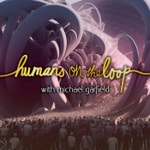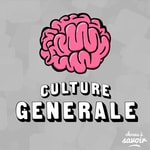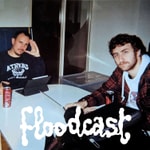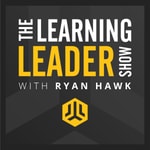Humans On The Loop – Details, episodes & analysis
Podcast details
Technical and general information from the podcast's RSS feed.

Humans On The Loop
Michael Garfield
Frequency: 1 episode/13d. Total Eps: 254

michaelgarfield.substack.com
Recent rankings
Latest chart positions across Apple Podcasts and Spotify rankings.
Apple Podcasts
🇬🇧 Great Britain - philosophy
20/07/2025#76🇨🇦 Canada - philosophy
12/07/2025#100🇨🇦 Canada - philosophy
11/07/2025#74🇩🇪 Germany - philosophy
09/07/2025#76🇩🇪 Germany - philosophy
08/07/2025#52🇩🇪 Germany - philosophy
07/07/2025#83🇩🇪 Germany - philosophy
06/07/2025#49🇺🇸 USA - philosophy
05/07/2025#100🇩🇪 Germany - philosophy
04/07/2025#91🇩🇪 Germany - philosophy
03/07/2025#72
Spotify
No recent rankings available
Shared links between episodes and podcasts
Links found in episode descriptions and other podcasts that share them.
See all- https://cash.app/
17186 shares
- https://chat.openai.com/
695 shares
- https://www.instagram.com/p
11467 shares
RSS feed quality and score
Technical evaluation of the podcast's RSS feed quality and structure.
See allScore global : 64%
Publication history
Monthly episode publishing history over the past years.
🤰🏽🧐🕸️ 225 - Alyssa Allegretti on Sacred Domesticity and Hard Times in The Liminal Web
vendredi 23 août 2024 • Duration 01:45:19
Subscribe, Rate, & Review on YouTube • Spotify • Apple Podcasts
✨ About This Episode
If you’re wondering why this episode came later than I promised, well…look no further than the text and subtext of this very rich discussion: it ain’t easy being a scholar when your kids keep banging down the door. This week I speak with professional organizer, single mother, and badass independent public intellectual (in no specific order) Alyssa Allegretti (Website | Substack | Facebook) about making one’s way in the Wild West of the digital realm as someone balancing the seemingly-opposed responsibilities of parenthood and philosophy.
Herein we discuss the challenges and opportunities presented by the digital age, particularly for those navigating non-traditional career paths, parenthood, and the search for authentic connection.
This conversation touches on the themes of invisible labor, particularly the often-unrecognized contributions of women and caregivers; the limitations of traditional institutions in recognizing and supporting diverse voices and lifestyles; and the importance of finding the sacred in the mundane aspects of daily life. We also grapple with the complexities of online communities, acknowledging both their potential for fostering connection and their tendency to amplify social divisions and reward performative behavior. Ultimately, my riffs with Alyssa underscore the importance of personal responsibility, self-awareness, and strong relationships in navigating the ever-evolving liminal zones of our metamorphic century.
Enjoy, and thanks for listening!
✨ Support This Work
• Buy my brain for hourly consulting or advisory work on retainer• Become a patron on Substack or Patreon• Help me find backing for my next big project Humans On The Loop• Buy the books we discuss from my Bookshop.org reading list• Buy original paintings and prints or commission new work• Join the conversation on Discord in the Holistic Technology & Wise Innovation and Future Fossils servers• Make one-off donations at @futurefossils on Venmo, $manfredmacx on CashApp, or @michaelgarfield on PayPal• Buy the show’s music on Bandcamp — intro “Olympus Mons” from the Martian Arts EP & outro “Sonnet A” from the Double-Edged Sword EP
✨ Episode Breakdown (Provided by NotebookLM)
Chapter 1: Introductions and Invisible Labor (0:00:00-0:10:01)
Alyssa’s Background: Alyssa discusses her experience as a “Facebook Intellectual” and the limitations of traditional paths to intellectual and creative pursuits for women, particularly mothers.
Sacred Domesticity: Alyssa introduces her work, which focuses on “sacred domesticity,” viewing housekeeping and homemaking as a microcosm of larger social issues and a valuable space for personal growth.
Alyssa’s Work: Alyssa details her work as a professional organizer and house cleaner, emphasizing its therapeutic aspects, particularly for women and those struggling with executive functioning.
Chapter 2: Marginalized Voices and the Liminal Web (0:10:01-0:20:00)
Michael's Story: Michael shares his personal journey to becoming an independent scholar and the challenges of navigating financial instability while pursuing non-traditional intellectual work.
Value of Marginalized Perspectives: Both speakers acknowledge the unique insights offered by individuals outside traditional academic and professional structures.
The Liminal Web and Gender Imbalance: Alyssa recounts her experience with a perceived gender imbalance in online intellectual communities, using the “liminal web” as an example.
Chapter 3: Work-Life Integration and Alternative Spaces (0:20:00 - 0:30:00)
Motherhood and Intellectual Pursuits: Alyssa describes the difficulties of pursuing a career in intellectual fields as a young, single mother. She highlights the inherent unfriendliness of these spaces to parents and those with marginalized identities.
Alternative Solutions: Alyssa argues that viable solutions for work-life integration are emerging in female and queer-dominated spaces, like the coaching industry, that prioritize alternative education and self-employment.
Critique of Traditional Institutions: Alyssa critiques the inaccessibility of traditional academic institutions for individuals facing socioeconomic barriers, neurodiversity, and past trauma.
Chapter 4: The Sacred in the Mundane (0:30:00-0:40:00)
Domestic Realm and Personal Growth: Alyssa discusses the importance of recognizing the domestic realm as a legitimate space for personal growth and mental health support, regardless of gender.
Blurring Boundaries: Alyssa highlights her efforts to integrate her work life and home life, finding inspiration in the mundane aspects of parenting and domesticity.
Seeking Community and Authenticity: Alyssa expresses her grief over the separation between the “best parts of life” and her children. She desires more inclusive and accepting spaces where individuals can be their full selves.
Chapter 5: Intergenerational Knowledge and Societal Fragmentation (0:40:00 - 0:50:00)
Invisible Labor and Gender Roles: Alyssa and Michael discuss the concept of invisible labor, particularly within the context of traditional gender roles. They acknowledge the complexities and nuances of labor distribution in modern families.353637
Reconciling Parenthood and Personal Pursuits: Alyssa shares her personal approach to balancing her writing with the demands of motherhood, emphasizing the importance of presence and self-awareness.
The Loss of Intergenerational Transmission: Michael laments the fragmentation of families and the loss of intergenerational knowledge transfer due to the separation of work and family life.
Chapter 6: The Planetary Layer and Rethinking Community(0:50:00-1:00:00)
Online Communities as Extensions of Family: Michael discusses his transition away from generic online communities towards local groups, emphasizing the importance of grounded, real-world connections.
The Unhealthy Influence of Globalist Thinking: Michael critiques the tendency of globalist thinking to prioritize abstract ideals over the needs of individuals and communities.
The Trad Wife Phenomenon and the Moralization of Domesticity: Alyssa and Michael discuss the rise of the “trad wife” phenomenon and the dangers of romanticizing and commodifying domestic life.
Chapter 7: Embracing Imperfection and Domestic Liberation (1:00:00-1:10:00)
Domestic Liberation: Alyssa challenges listeners to envision “domestic liberation,” reclaiming home life from external pressures and embracing its inherent value.
Finding Inspiration in Imperfection: Alyssa acknowledges the limitations and imperfections inherent in both online and offline communities, advocating for a more compassionate and accepting approach to social change.
The Power of Difference: Alyssa believes that true social progress relies on acknowledging, accepting, and integrating differences, rather than striving for unattainable ideals.
Chapter 8: Vulnerability, Transparency, and Digital Identity (1:10:00-1:20:00)
The Paradox of Online Domesticity: The speakers discuss the paradoxical nature of online platforms like YouTube, where individuals are encouraged to commodify their family lives for financial gain.
Counter-Narratives and Authenticity: Alyssa highlights emerging counter-narratives in the online domesticity sphere that challenge the romanticized and idealized portrayals of home life.
Transparency as a Tool for Healing: Alyssa shares her personal experience with using online platforms to challenge societal expectations and de-stigmatize taboo subjects.
Chapter 9: Navigating the Digital Age with Children(1:20:00-1:30:00)
The Impact of Technology on Parenting: Michael and Alyssa discuss the challenges of navigating technology's influence on family life, particularly the potential dangers of online exposure for children.
Teaching Digital Literacy and Boundaries: Alyssa highlights the importance of teaching children digital literacy, helping them understand the complexities of online spaces, and setting healthy boundaries.
Modeling Self-Awareness and Responsibility: Alyssa emphasizes the need for parents to model self-awareness and responsibility in their own online interactions, demonstrating healthy ways to engage with digital spaces.
Chapter 10: Personal Responsibility and the Limits of Accountability (1:30:00-1:42:49)
The Burden of Being the “Reasonable Adult”: Michael and Alyssa discuss the emotional labor involved in maintaining composure and promoting healthy discourse in online spaces, particularly given the lack of external validation for such efforts.
Redefining Accountability in Relationships: Alyssa advocates for a shift from externally imposed accountability to personal responsibility, emphasizing the importance of surrounding oneself with individuals who prioritize self-awareness and growth.
Finding Sustainable Ways to Connect: Alyssa emphasizes the importance of strong friendships and chosen families in navigating the complexities of modern life and creating a more sustainable future.
This is a public episode. If you'd like to discuss this with other subscribers or get access to bonus episodes, visit michaelgarfield.substack.com/subscribe
🔍👁️🔮 224 - Helané Wahbeh of IONS on Arguments against Materialism and for New Theories of Consciousness
mardi 6 août 2024 • Duration 58:57
Subscribe, Rate, & Review Future Fossils on YouTube • Spotify • Apple Podcasts
✨ About This Episode
This week on Future Fossils we speak with Helané Wahbeh (LinkedIn), Director of Research at The Institute of Noetic Sciences, adjunct assistant professor in the Department of Neurology at Oregon Health & Science University, and author of over ninety peer-reviewed publications as well as the book The Science of Channeling. Our main course: a recent review in Frontiers of Psychology entitled, “What if consciousness is not an emergent property of the brain? Observational and empirical challenges to materialistic models”.
In this conversation we take a thirty-thousand foot view of the history and future of the science of consciousness, the socioeconomic impediments to unflinching consciousness research, and the overwhelming weight of transcultural experience that make this such a promising domain for fundamental investigation.
Enjoy, and thanks for listening!
✨ Support This Work
• Become a patron on Substack or Patreon• Buy original paintings and prints or commission new work• Buy the books we discuss from my Bookshop.org reading list• Help me find backing for my next big project Humans On The Loop• Join the conversation on Discord in the Holistic Technology & Wise Innovation and Future Fossils servers• Make one-off donations at @futurefossils on Venmo, $manfredmacx on CashApp, or @michaelgarfield on PayPal• Buy the show’s music on Bandcamp — intro “Olympus Mons” from the Martian Arts EP & outro “Sonnet A” from the Double-Edged Sword EP
✨ Related Episodes
Dig into an extensive back catalog of consciousness-research-flavored episodes (psi phenomena, non-ordinary states, psychedelic neuroscience, oracular praxes, time and consciousness, etc.) at the Future Fossils Consciousness Research Spotify playlist or through the following Substack links:
03 Tony Vigorito05 Mitch Schultz20 Joanna Harcourt-Smith27 Niles Heckman and Rak Razam30 Becca Tarnas37 The Ungoogleable Michaelangelo45 Kerri Welch57 Conner Habib and Mitch Mignano58 Shane Mauss69 Tim Freke78 Archan Nair88 Dennis McKenna99 Erik Davis100 The Teafaerie103 Tricia Eastman112 Mitsuaki Chi113 Sean Esbjörn-Hargens117 Eric Wargo119 Jeremy Johnson124 Norman Katz125A Stuart Kauffman (patrons only)126 Phil Ford and J.F. Martel127 Cory Allen131 Jessica Nielson and Link Swanson132 Erik Davis150 Sean Esbjörn-Hargens156 Stuart Davis170 The Ungoogleable Michaelangelo171 Eric Wargo176 Sophie Strand and Richard Doyle and Sam Gandy179 Scout Wiley 186 Solo: A Manifesto for Weird Science218 Neil Theise222 Andrés Goméz Emilsson
This is a public episode. If you'd like to discuss this with other subscribers or get access to bonus episodes, visit michaelgarfield.substack.com/subscribe
🫂👩🏼💻🔍 215 - Social Science & Collective Intelligence with Brigham Adams of Goodly Labs
lundi 22 janvier 2024 • Duration 01:39:48
This week I speak with social scientist Nicholas Brigham Adams (Twitter, LinkedIn) about his work at Goodly Labs to create new infrastructure for collective intelligence — new systems for collective fact-checking and sense-making that can help us rise to the occasion of our inherently social, planet-scale challenges. And the time for this work is definitely NOW. As paths across social, economic, and ecological networks continue to shrink due to the increasing connectivity of technological systems, humankind migrates from an Earth on which most events seem impossibly distant and irrelevant to an Earth defined by nonlinear, often exponential impacts of seemingly-trivial developments anywhere on the planet. This is the century — and the decade — in which many of us have no choice but to learn, the easy way or the hard way, the consequences of our increasing vulnerability to and power over one another. And one of the places this is most vividly apparent is in how truths and untruths ripple at unprecedented speeds across the globe, forcing us into a new and intense cosmopolitanism. In the 1940s, the message was “Loose lips sink ships.” Perhaps the message for the 2020s is “Cognitive biases spread mind viruses.”
If you’ve followed me for a while, you’ve likely read my 2017 science fiction short story “An Oral History of The End of ‘Reality’”, a peek into our present-day post-truth carnival funhouse where AI-assisted forgeries demand vastly more nuanced and sophisticated methods for navigating fundamental uncertainty, far greater humility about our validity claims, and revolutionary tools for thinking together. We have to learn to communicate the degree and dimension of our confidence and of our doubt — to learn how we can rigorously restore the trust necessary for coordination at scale — and Goodly Labs is, in my opinion, one of the most promising efforts in the world right now in this regard. 2024 is very likely to feel like the end of reality for a lot of us, and the stakes are immense: fair presidential elections, concerted ecological action, and effective AI steering policy are all domains of existential risk in which we MUST be able to reconstruct some kind of minimally viable consensus reality. I’d be considerably more worried for our future if I did not know that there are people like Brigham Adams and his amazing team of academics, founders, engineers, and journalists tilting their spears directly at this issue and working around the clock to help midwife that Holy Grail of communications technology: a sane and healthy global brain.
Announcement: The Future Fossils Book Club is back! Join me for to discuss Iron John: A Book About Men by Robert Bly on Saturday 27 January and Saturday 10 February from 12p-2p MST. I’ll send Substack and Patreon supporters the link to both calls soon, and there will be a dedicated private discussion channel in the Discord server.
✨ Mostly-Complete List of Citations:
Study: On Twitter, false news travels faster than true stories (MIT News)LOGIN 2009 keynote: gaming in the world of 2030 by Charles Stross (transcript)Ready Player One by Ernst ClineThe meaning of life in a world without work by Yuval Noah Harari (read at web.archive.org or 12ft.io)Thinking, Fast and Slow by Daniel KahnemanMotivated Numeracy and The Politics-ridden Brain by Stuff To Blow Your Mind (podcast)Coming Into Being by William Irwin ThompsonExplosive Proofs of Mathematical Truths by Simon DeDeo (lecture video)Stewardship of global collective behavior by Joseph Bak-Coleman et al. (paper)OpenAI's anarchist science chief is a techno-spiritual culthead (Athenil)So You Want To Be A Sorceror In The Age of Mythic Powers by Josh Schrei (podcast)Saul PerlmutterOccupy MovementJamie JoyceLynn MargulisDouglas EngelbartAlexander BeinerDouglas RushkoffSteve JobsStewart BrandW. Brian ArthurJim RuttSense8 (television series)
✨ Support My Work:
• Subscribe on Substack or Patreon for COPIOUS extras, including private Discord server channels and MANY secret episodes!• Make one-off donations at @futurefossils on Venmo, $manfredmacx on CashApp, or @michaelgarfield on PayPal.• Buy the music of Future Fossils (in this episode: “Olympus Mons” & “Sonnet A”) on Bandcamp.• Buy the books we discuss at the Future Fossils Bookshop.org page and I’ll get a cut.• Browse and buy original paintings and prints or email me to commission new work!
This is a public episode. If you'd like to discuss this with other subscribers or get access to bonus episodes, visit michaelgarfield.substack.com/subscribe
125 - Stuart Kauffman on Physics, Life, and The Adjacent Possible
vendredi 6 septembre 2019 • Duration 01:40:40
This week’s guest is living legend, transdisciplinary scientist-philosopher Stuart Kauffman, whose pioneering work on self-organization and the emergence of order helped launch the field of complex systems science and has brought us to the very edge of understanding the origins and nature of life. Over his 50+ year career and six books, including this year’s The World Beyond Physics, Stu has done more than almost anyone to restore the historic union of science and philosophy, articulating a new spirituality for our secular age of systems thinking, and filing numerous patents on technologies of chemical synthesis and quantum mechanics.
It's an epic conversation with a bold and boundary-less mind. In this episode we drive right to the heart of one of humankind’s biggest and most persistent mysteries: What is life?
Stuart Kauffman’s EXTENSIVE & ILLUMINATING Google Scholar Page:
https://scholar.google.com/citations?hl=en&user=yoPM0F8AAAAJ&view_op=list_works&sortby=pubdate
This week’s vocabulary word: “ergodic”
https://www.merriam-webster.com/dictionary/ergodic
Become a Patreon supporter to listen to Part 2 of this conversation, on quantum physics and consciousness:
http://patreon.com/michaelgarfield
We Discuss:
the adjacent possible
the origins of life
niche construction & niche propagation (which i initially conflate, but he re-differentiates)
exaptation
the incomputability of the list of all possible uses of a thing
why are there hearts in the universe?
“the universe is non-ergodic and most complex things will never exist”
“there are no laws whatsoever for the evolution of the biosphere”
contingent, or inevitable? enabled, or caused?
the economy creates the possibilities into which it is sucked
Terence McKenna’s strange attractor at the end of time
constraint closure and the release of energy in fewer degrees of freedom
abiogenesis and the protocell as a model of its environment
are there constraints without work?
the number of cell types in an organism is roughly the square root of the number of genes
“information is precisely the release of energy into fewer degrees of freedom”
Paul Davies & Sara Imari Walker
Johnjoe McFadden
Giuseppe Longo
the system will spend more time in macrostates in which there are more microstates (Boltzmann)
Supplemental Materials:
Stuart Kauffman’s essay, “No entailing laws, but enablement in the evolution of the biosphere”
https://arxiv.org/pdf/1201.2069.pdf;alsoseeGiuseppeLongo
Stu’s co-author Wim Hordijk on autocatalysis at Orbiter Mag:
https://orbitermag.com/how-did-life-begin-part-3/
Michael’s essay, “The Future is Exapted/Remixed”
Michael’s extensive notes on the ideas of this episode, “Toward A New Evolutionary Paradigm”
https://www.patreon.com/posts/toward-new-1-0-24798022
Original intro music by Michael Garfield, “Birds Waking Up In Trees”
https://michaelgarfield.bandcamp.com/album/love-scenes-field-recordings
Show outro music by Evan “Skytree” Snyder feat. Michael Garfield, “God Detector”
https://skytree.bandcamp.com/track/god-detector-ft-michael-garfield
Get bonus content on PatreonSupport this show http://supporter.acast.com/futurefossils.
Hosted on Acast. See acast.com/privacy for more information.
This is a public episode. If you'd like to discuss this with other subscribers or get access to bonus episodes, visit michaelgarfield.substack.com/subscribe
124 - Norman "Dr. Blue" Katz on Hypnosis & The Mind
samedi 31 août 2019 • Duration 01:16:39
This week’s guest is Norman Katz, aka Dr. Blue – a lifelong practitioner of hypnotherapy and the impresario of 3SidedWhole, nine acres of magical weirdness in the desert outside Albuquerque, New Mexico. I’ve known Dr. Blue for nearly a decade and he’s deeply enriched my life over the years with his amazing stories, empowering mind hacks, and community of soulful southwestern weirdos. In this episode, he regales us with stories of psychological research into UFOs, past lives, fractals, and flow states; the history of hypnosis, his study under hypnotherapy pioneer Milton Erickson, the psychophysiology of laughter yoga, and – more broadly – the importance, and the surprising ease, of choosing the trance you want to be in…
Dr. Blue’s Website:
http://www.normankatzphd.com/curricula-vitae.html
3SidedWhole Website:
“We were doing LSD as the patient and the therapist simultaneously…it was quite interesting.”
“There still is no study that verifies that hypnosis is a particular brain state or neurological constellation. Hypnosis is not a brain state. It turns out to be a skill and an aptitude that’s based on combining attention, and fantasy, and a predilection for dissociation.”
“Our perception of reality is at least half constructed by what we expect, what we imagine, and what we pretend. In fact, it’s really hard to teach people new things, because most of the time they’re trying to match new things to their old models.”
“It was the only lecture I’ve ever seen where 300 psychotherapists stood up afterward an gave him a standing ovation. And his theory was, bascially, individual psychotherapy is not only ineffective, it’s wrong, and it disconnects people from their community. He said, the biggest mistake in Western Civilization was when Descartes said, ‘Cognito ergo sum,’ ‘I think, therefore I am.’ And what he should have said was, ‘Convivo ergo sum.’ ‘I celebrate in community, therefore I am.’”
“At any point in time, ask yourself this question: ‘If I had been hypnotized to be doing what I’m doing right now and having this experience, what would I have been told?’”
“Erickson used to tell his students, ‘Pretend, and pretend you’re not pretending.’”
“In the West, most people breathe too much.”
“I had a formal psychology training at Harvard. Most of that turned out to be nonsense. Learn to unlearn. Learn to forget. Learn to be innocent. Let yourself continue to reinvent yourself and discover who you are, because you are more than any of us think you are.”
Support this show on Patreon to join the book club and for secret episodes:
https://patreon.com/michaelgarfield
Intro Music: “Undefeatable Optimism Gets Up From K.O.” by Michael Garfield
https://michaelgarfield.bandcamp.com/album/love-scenes-field-recordings
Outro Theme Music: “God Detector” by Evan “Skytree” Snyder (feat. Michael Garfield)
https://skytree.bandcamp.com/track/god-detector-ft-michael-garfield
Appendix: 51 blackbelt hypnosis skills, a partial list of course
(the master skill is to perceive a coherent reality in one frame ignoring the 27 other timelines)
instant time travel, to past, present and future. multiple timeline realities possible like in string theory in quantum physics
humor, ability to tell self joke and beginning laughing, and see humor and paradox in all situations
increased creativity as needed, transcend functional fixedness, and create new uses for objects, tools, situations
ability to reframe anything
ability to create synthesis to create positive action altered states of consciousness
ability to make pain disappear
ability to increase pleasure to ecstatic levels
ability to shift mood instantly
ability to tap into higher consciousness, both neurologically and to source (the universe)
ability to become WISE without thinking (i.e. go into no trance trance in which wisdom flows)
abilities to see life as movie within movie within movies and change the stories
ability to profoundly relax and melt, both physically and mentally
to be comfortable both inside and outside shared realities
ability to balance two nervous systems, sympathetic and parasympathetic, i.e. hypno-autogenics master
ability to come out of shell and act immediately, go fast or slow
ability to tell stories within stories within stories with threaded key meanings or concepts
ability to create useful symptoms as necessary e.g. lust for reading certain materials, exercise, etc.
ability to create amnesia or hyper recall memory (memory palace)
ability to be in the now in slow motion
ability to enter mystical states of oneness or everything-ness and transition through the infinity loop
ability to create and radiate happiness, joy and energy
ability to avoid the DARK SIDE of hypnotic hexes, vengeance or negative energy and to recognize when others are doing such and intervene
ability to do hypnotic shamanic ceremonies to invoke sacred space
ability to intervene in disease or create disease
ability to discern the "truth" or "lies" of self and others trance states
hypnotic protection of self and others, use of attention filters
sensory awareness enhancement (Charlotte Selver) both internal and external
mastering use of breathing
peak performance, for self and others – golf example, 2 holes in one in a row
ability to direct and choose trances for self and others (magic number in psychology 87 plus or minus two)
ability to completely let go
ability to experience and create compassion through mirror neurons
ability to alter blood blow: for healing work, pain control, sex therapy
ability to have too much fun
ability to create and use posthypnotic suggestion for self and others
ability to create health through medical interventions for surgery,
psychoimmunology and general well being
ability to will to live and to enjoy life
ability to find meaning and purpose in any situation, circumstances, and life challenge
ability to control altered states of consciousness both from plant guides, extreme circumstances and as training and for emergency interventions
ability to tap into special energies
ability to erase self and know nothing and be the fool
ability to deal with death, dying, and transitions
ability to hallucinate and now what is not real simultaneously
ability for extreme selective attention
ability to shift identity, archetypes AND PERSONALITY CONSTELLLATIONS
ability to deal with change, both small and large
ability for discernment: what to pay attention and listen to
ability to keep evolving
ability to recognize that we not are the healing force, only the gateways
ability to have supreme confidence
ability to balance
ability to recognize synchronicity and act on it
ability to shift energy, both physically, metaphysically and also medically
ability to recognize when less is more (homeopathy) – see Andrew Weil, The Marriage of the Sun and Moon
ability to see through culture and its assumptions in different cultures
ability to contact the ancestors and invite their presence and wisdom
ability contact DNA wisdom and ancestral memories
ability to do fractal healing
ability to stay open and curious
(note this does not include classic hypnosis suggestions on the Stanford hypnosis scales, which are elementary)
Get bonus content on PatreonSupport this show http://supporter.acast.com/futurefossils.
Hosted on Acast. See acast.com/privacy for more information.
This is a public episode. If you'd like to discuss this with other subscribers or get access to bonus episodes, visit michaelgarfield.substack.com/subscribe
123 - David Weinberger on Everyday Chaos & Thriving Amidst the Complexity
vendredi 23 août 2019 • Duration 01:12:46
This week we’re joined by David Weinberger, Senior Researcher at the Harvard Berkman Klein Center for Internet and Technology exploring the effects of technology on how we think. David’s led a fascinating and nonlinear life, studying Heiddeger as a young philosopher, working in marketing for high technology, working as a journalist, and authoring four books on technology, creativity, and knowledge. His new book, Everyday Chaos: Technology, Complexity, and How We're Thriving in a New World of Possibility, explores what changes for us in the age of machine learning.
I have to admit, I was worried this was going to be just another technocratic puff piece when I started. Certainly it’s a Harvard Business Review Press volume, speaking largely to a business audience; but this is a book that doesn’t flinch at the weirdness of a world in which we know things we don’t know how we know. David’s argument is for a creative embrace of the complexity and mystery that has always surrounded us – that we are in fact made of – and that is becoming much more obvious in light of superhuman but opaque machine intelligences that rehab us from the delusions of our modern pretense that the world is knowable, transparent, and controllable. But unlike the doomsayers of the AI conversation, David has an enviable peace about the fact that we never actually had a lock on what is really going on – and argues eloquently for a fresh encounter with a world of wonder, possibility, and the unknown.
David at Harvard:
https://cyber.harvard.edu/people/dweinberger
David on Medium (“Machine Learning Might Render The Human Quest for Knowledge Pointless”):
With open APIs, open access journals, game modding, and other empowering information technologies, we are purposefully making the world less predictable.
Laws are not necessarily the most accurate way of describing reality.
The death knell for the theory of everything - letting go of unifying universal frameworks.
“It’s not really a three-body problem. It’s an every-body problem, because everything with gravity effects everything else.”
“Everything - EVERYTHING in our lives we basically don’t know, and can’t predict. But the picture of our lives has been, until recently, ‘It’s simple and law-like.’ The chaos, this is our lives. The laws, they are real, they are helpful, but they don’t govern as much as we like to think.”
“We think out in the world with tools. There’s no shame in this, but it does mean we’re not locked in our own heads. And now we have new tools.”
“…it depends on what you count as an explanation.”
“We need to leave room for the accidental, because that is the stuff of our lives.”
“I don’t know what a transparent algorithm is.”
Are we willing to trade a thousand auto deaths a year for the explicability of autonomous vehicle safety algorithms? Or fuel efficiency?
“An explanation is a tool. It’s not a state of the world.”
• Relatedly, we just read Liu Cixin’s The Three Body Problem in the Future Fossils Book Club:
https://www.patreon.com/posts/book-club-3-body-29353389?cid=26063131
• Theme Music: “God Detector” by Evan “Skytree” Snyder (feat. Michael Garfield).
• Additional Music: “Single & Feeling” by Michael Garfield.
Get bonus content on PatreonSupport this show http://supporter.acast.com/futurefossils.
Hosted on Acast. See acast.com/privacy for more information.
This is a public episode. If you'd like to discuss this with other subscribers or get access to bonus episodes, visit michaelgarfield.substack.com/subscribe
122 - Magenta Ceiba on Regenerative Everything
mercredi 14 août 2019 • Duration 01:02:27
This week’s guest is Magenta Ceiba, Executive Creative Officer (ECO) for the Bloom Network, a worldwide constellation of regenerative design hackers working in ecology, economics, civil engineering, software design, restorative justice, organizational development, and more. Bloom is hosting Pollination, an “unconference” or immersive in-person hack-a-thon, this coming weekend in San Francisco – a place for this amazing extended international network (including you, potentially) to convene for design sprints for new practices and systems to restore the health and value of our world.
I hope you’ll treat this episode as a gateway into an amazing profusion of awesome ideas and people, just the very tip of a very deep and well-furnished rabbithole.
Here are some leads to get you started:
• See the Pollination 2019 program on Bloom Network’s website.
(If you have friends in the Bay Area who might like to come, here’s a promo code for a $50 discount: BLOOM50 so they can join for just $195. The Bloom Network also has low income/scholarship tickets available: please fill in the form here. I am not an affiliate and get no reward from this, other than knowing that you attended and got to participate.)
• Another excellent conversation with Magenta (plus copious resource links) at Abundant Edge Podcast.
• Mark Heley interviews Pollination 2019 MC (and Future Fossils guest) Maya Zuckerman.
These three quotes came in Rob Breszny’s email newsletter today and couldn’t be more appropriate:
“You never change things by fighting the existing reality. To change something, build a new model that makes the existing model obsolete.”
—Buckminster Fuller
“We have to encourage the future we want rather than trying to prevent the future we fear.”
—Bill Joy
“The secret of change is to focus all of your energy, not on fighting the old, but on building the new.”
—Dan Millman
Related Episodes:
• Episode 46 - Magenta Ceiba’s first appearance on Future Fossils.
• Episode 56 - Sophia Rohklin on the inter-relationship of ecology & economy.
• Episode 61 - Jamaica Stevens on crisis, rebirth, and transformation.
• Episode 98 - Decentralization Panel at Arcosanti w/ members of NuMundo Project, Unify, & The Institute of Ecotechnics.
Credits:
• Theme Music: “God Detector” by Evan “Skytree” Snyder (feat. Michael Garfield).
• Additional Music: “Single & Feeling” by Michael Garfield.
• Episode Cover Image: Concept Art for The Fifth Sacred Thing by Jessica Perlstein.
Get bonus content on PatreonSupport this show http://supporter.acast.com/futurefossils.
Hosted on Acast. See acast.com/privacy for more information.
This is a public episode. If you'd like to discuss this with other subscribers or get access to bonus episodes, visit michaelgarfield.substack.com/subscribe
121 - Divya M. Persaud on The Ethics of Space Exploration
mercredi 7 août 2019 • Duration 01:23:53
This week we dive into the troublesome, urgent, and underdiscussed issue of space ethics with planetary scientist and artist Divya M. Persaud. Can we transcend the traumatic conflict and exploitation that characterize human history, come together in compassionate mutual understanding and respectful discourse, and leave our children with better and more interesting problems? Or are we doomed to transmit the legacy of violence we inherited into fractured futures even more disparate, tragic, and unequal than our own time? A deep dive into the real stakes of space, and a preliminary exposition of the ethical discussions we will need to get there…
Divya’s Website:
https://divyampersaud.wordpress.com/about/
Selected Writings:
https://phdvolcanology.wordpress.com/2018/10/08/space-and-time-for-diversity/
https://womeninastronomy.blogspot.com/2018/02/talking-about-tesla-by-emily-lakdawalla.html
https://twitter.com/Divya_M_P/status/1080310839465467909
Intro Music: Evan “Skytree” Snyder feat. Michael Garfield, “God Detector”
https://skytree.bandcamp.com/track/god-detector-ft-michael-garfield
Outro Music: Divya M. Persaud, “Orogenesis” for Voice, Violin, Saxophone, and Piano
https://soundcloud.com/divyamp/orogenesis-for-voice-violin-saxophone-and-piano`
Additional reading on the ethics of space exploration:
https://www.bmsis.org/the-ethics-of-space-exploration/
Support Future Fossils on Patreon to get access to our science fiction book club calls, secret episodes, and more:
https://patreon.com/michaelgarfield
Join the daily conversation in the Future Fossils facebook group:
https://facebook.com/groups/futurefossils
Get bonus content on PatreonSupport this show http://supporter.acast.com/futurefossils.
Hosted on Acast. See acast.com/privacy for more information.
This is a public episode. If you'd like to discuss this with other subscribers or get access to bonus episodes, visit michaelgarfield.substack.com/subscribe
120 - Ramin Nazer on Cave Paintings for Future People
mardi 30 juillet 2019 • Duration 01:48:43
This week we surf the fun-gularity with the brilliant artist, standup comic, and podcaster Ramin Nazer! This episode is significantly less a heady philosophy-of-science discussion than usual and significantly more a wank-fest of two people who love each other’s shows going on about all the mind-blowing visionary notions contained therein. Kick back, light some incense, and prepare for a juicy conversation about where we stand in the Cosmic Order and what to do with all of our creative possibility…covering everything from universal basic income to celebrity schadenfruede, visionary art and science fiction to to the psychological impact of trying to stay original in the midst of a tech singularity. If you’re anything like I am, Ramin is going to inspire the hell out of you. Enjoy…
Ramin’s Website:
https://rainbowbrainskull.com/collections/prints
Michael on Ramin’s podcast, Rainbow Brainskull:
https://www.raminnazer.com/blogs/rainbow-brainskull-hour/michael-garfield
Mentioned:
Archan Nair, The Teafaerie, Nikola Tesla, Onyx Ashanti, King Raam, The Rock, Andrew Yang, Yuval Harari, Bill Gates, Star Trek Discovery, Charles Stross’ Accelerando & Glasshouse, Black Mirror, Esperanza Spalding, Duncan Trussell, Richard Florida, Jeff Bezos, William Irwin Thompson, Terence McKenna, John C. Wright’s Eschaton Sequence, Peter Watts’ Blindsight, Eric Wargo’s Time Loops, Colin Frangicetto, Who Built The Moon?, No Man’s Sky, An Oral History of the End of Reality, Ariana Grande, Jimi Hendrix, Amazon Alexa, Life in the Glass Age at Burning Man 2013, Dadara (Daniel Rozenberg), The Mirage Men, Jason Silva, Randal Roberts, Morgan Manley, Alex Grey, Allyson Grey, Michaelangelo, Slavoj Zizek, Marshall McLuhan, Chuck Palahniuk, Jordan Peterson, Aziz Ansari, Louis CK, Julia Cameron, Alan Shelton, Buckminster Fuller, Frank Zappa, Mortal Kombat, Roko’s Basilisk, Norman “Dr. Blue” Katz, Joe Biden, Awake Aware Alive Podcast, Expanding Mind with Erik Davis, Rak Razam, Adam Dipert, Giant Leap Dance Company, Pablo Picasso, Vincent Van Gogh, Greg Parkins, Neil DeGrasse Tyson, Weird Studies, Brave Browser
Support this show on Patreon and score a zillion awesome perks:
https://patreon.com/michaelgarfield
Subscribe to our monthly creative explosion of a newsletter:
https://michaelgarfield.substack.com
Get bonus content on PatreonSupport this show http://supporter.acast.com/futurefossils.
Hosted on Acast. See acast.com/privacy for more information.
This is a public episode. If you'd like to discuss this with other subscribers or get access to bonus episodes, visit michaelgarfield.substack.com/subscribe
119 - Jeremy Johnson on The Integral Time of Jean Gebser
lundi 22 juillet 2019 • Duration 01:19:00
“The human being is actually this kaleidoscope of different ways to relate to time and space. And to be present with it all, to be awake with it all, is what we’re doing.”
Jean Gebser mapped the mutating structures of human consciousness, the topology of mind from archaic to magic to mythic to mental to integral. His work inspired generations of inquiry by authors like William Irwin Thompson and Ken Wilber. Now Jeremy Johnson’s latest book for Revelore Press expands into the truly visionary and unique “amensional” reality that Gebser posits as the next mutation for our planetary culture.
“We’re not just going to have an ‘archaic revival’ and dump what we’ve been doing with the nightmare of history. There’s something that’s been achieved in this kind of coalescing of the self and the emergence of spatial linear time that’s true, as well.”
“The endgame of perspectivalism and the mental world…is eventually breaking down to the point where everyone has their own little perspectival ‘reality tunnel,’ where nobody’s able to talk to one another and everybody’s in this sense of cultural warfare and fragmentation and social isolation.”
“You should know by now that things are ever-present.”
Jeremy’s Book:
https://revelore.press/product/seeing-through-the-world/
Jeremy’s Podcast:
http://www.jeremydanieljohnson.com/mutations
Discussed:
James Joyce
Marshall McLuhan
Martin Heidegger
Sri Aurobindo
Grant Morrison
Timothy Morton
Doug Rushkoff
Eugene Thacker
Graham Harman
Support the show on Patreon for an avalanche of secret episodes, writing, art, music, and the Future Fossils Book Club:
https://patreon.com/michaelgarfield
Get bonus content on PatreonSupport this show http://supporter.acast.com/futurefossils.
Hosted on Acast. See acast.com/privacy for more information.
This is a public episode. If you'd like to discuss this with other subscribers or get access to bonus episodes, visit michaelgarfield.substack.com/subscribe









